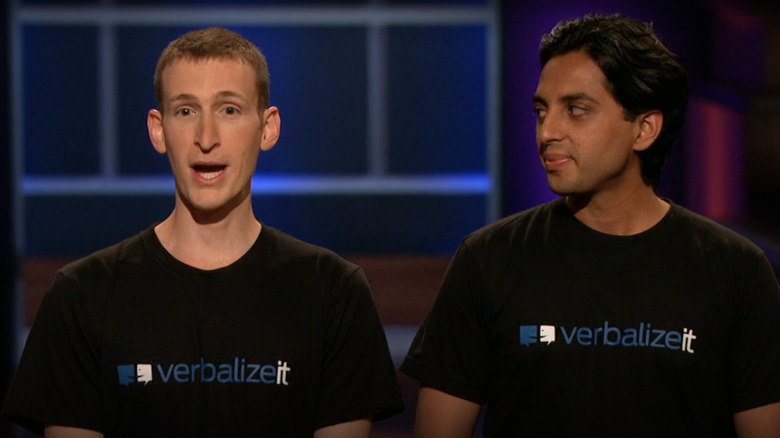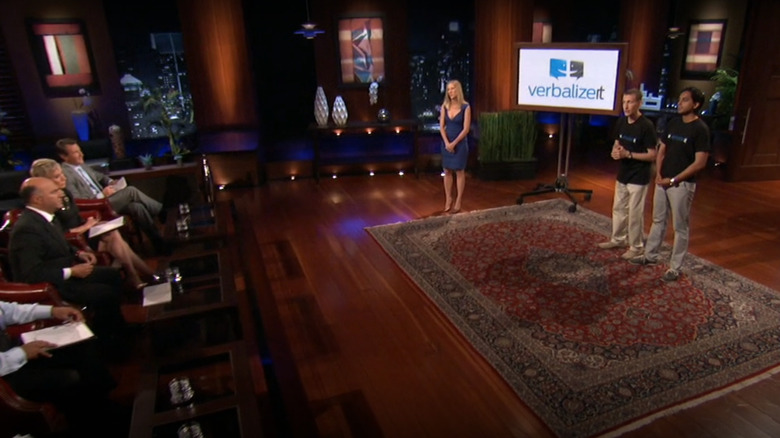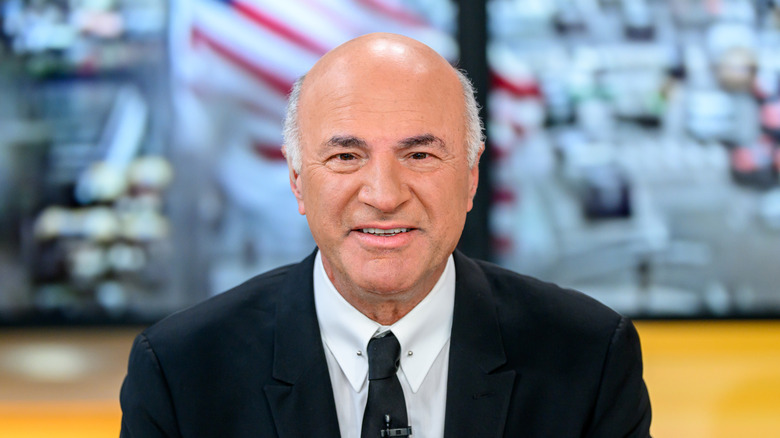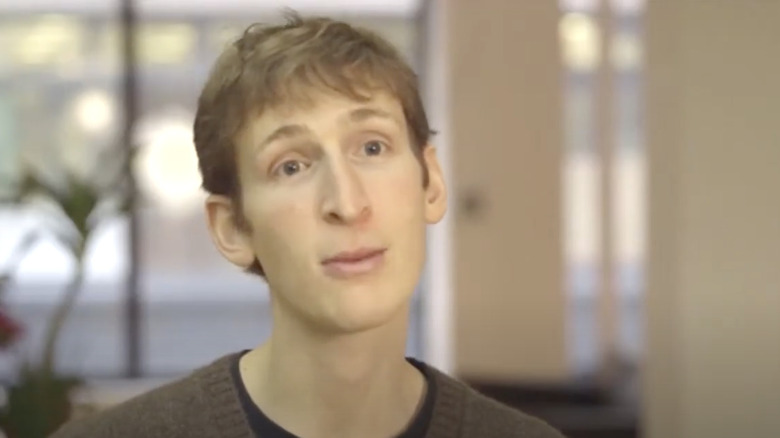What Happened To The VerbalizeIt Translation App From Shark Tank Season 4
Technological advancements have made it possible for people across the world to connect almost instantaneously. However, since not everyone speaks the same language, translation services are often needed for assistance. Global travel and international business are two areas where translation services flourish, since they require the seamless communication of often important information. Technology has made strides with machine translation tools like these text-to-speech apps for foreign languages, but nuances like dialects and cultural context pose challenges that only human translators can effectively address. This gap between technology and genuine human understanding is where innovative solutions like VerbalizeIt found their niche.
VerbalizeIt was developed by Wharton Business School graduates Ryan Frankel and Kunal Sarda to connect users with live human translators via a smartphone app or web browser. The pair got the idea after they both struggled with language barriers while traveling abroad. Seeing a need for a system that could bridge this gap, they began building a network of human translators and a way to access them in real time.
With this solid business concept on hand and a growing network of translators, Frankel and Sarda took VerbalizeIt to ABC's "Shark Tank" in Season 4 about a month after its launch. If you can remember back to 2013, you might also recall a Season 4 pitch for the nPowerPeg kinetic recharging device. In their appearance on Episode 26 that season, Frankel and Sarda sought an investment that would help them expand their company's operations. But while their idea sparked interest among the Sharks and millions of viewers, VerbalizeIt's appearance on "Shark Tank" proved to be just the beginning of its evolution.
What happened to VerbalizeIt on Shark Tank?
During their appearance on the finale of "Shark Tank" Season 4, Frankel and Sarda demonstrated how VerbalizeIt worked by asking a translator named Erica to relay to the Sharks what they were pitching in Spanish. After the demo, they discussed the specifics of their business. Users would have to connect to a translator via the VerbalizeIt app or web platform for it to work, but the pair stressed that their service outperformed machine translation by providing real human expertise.
After hearing their pitch, the Sharks were intrigued but skeptical. Kevin O'Leary and Robert Herjavec questioned whether VerbalizeIt could consistently deliver fast response times. The co-founders assured them that their growing community of translators across five languages was highly motivated to monetize their available time. They explained that translators were paid $7 to $15 per hour, while users were charged between 50 cents and $1 per minute. The profit margin was a whopping 70%.
To lure the Sharks further, they disclosed an imminent deal with Skype. Since that deal was not exclusive, Barbara Corcoran tapped out. Daymond John bowed out for a lack of interest in the tech space. Mark Cuban, who is leaving "Shark Tank" after Season 16, offered $250,000 for 25% equity, noting his expertise in language technology. O'Leary countered with an offer of $250,000 for 20% equity, and Herjavec matched Cuban's offer. After some deliberation, the pair went with O'Leary's deal, citing the strategic value he could bring to their business.
What happened to VerbalizeIt after Shark Tank?
Despite shaking hands with O'Leary before exiting the tank, the deal Frankel and Sarda secured on the show did not close. According to Shark Tank Blog, the co-founders ultimately decided not to push through with O'Leary's terms and opted to seek funding elsewhere. Transactions collapsing after filming is not uncommon; post-show due diligence can lead to changes in terms or reveal misalignments between investors and entrepreneurs. The pair secured investment from another source, which allowed them to expand VerbalizeIt's offerings beyond live translations.
Following their "Shark Tank" appearance, VerbalizeIt pivoted toward business-to-business (B2B) applications. This was in line with Cuban's on-air suggestion to focus on corporate clients rather than individual consumers. VerbalizeIt began offering document, website, app, and video translation services, and it started to strategically position itself as a comprehensive language solutions provider. This strategic shift attracted the attention of Smartling, a leading cloud-based translation company headed by fellow Wharton School graduate and then-CEO Jack Welde.
Smartling acquired VerbalizeIt for an undisclosed amount in 2016, integrating its human translation services into a broader technology platform. Under Smartling's ownership, VerbalizeIt shifted its focus even further toward business clients, catering to major companies like Spotify, Pinterest, and GoPro. Smartling then continued to thrive, with its innovative use of AI and machine translation contributing to a 40% growth rate in 2023.
What's next for the VerbalizeIt co-founders?
When Smartling acquired Verbalize It, Welde promised the co-founders leadership positions within the parent company. Frankel would focus on finding partnership opportunities, while Sarda would concentrate on product experience. However, Frankel left the company in October 2016, five months after the acquisition of VerbalizeIt.
According to his updated LinkedIn profile, Frankel pursued other ventures, such as publishing his book "The Making of an Entrepreneur: Lessons from a Winding Journey Towards Entrepreneurship." He then went on to establish EduPlated, an online nutrition coaching platform. He served as CEO of that company from 2016 to 2019 before founding This App Saves Lives, an effort to reduce distracted driving. He is currently the CEO of WorkUp, a wellness product marketplace he co-founded.
According to his LinkedIn account, Sarda stayed with Smartling for nearly four years, serving as vice president for customer engagement until January 2020. After that, he spent a year working as an independent consultant during the COVID-19 pandemic. In January 2022, he co-founded a new company called Arya, which develops workforce operations programs for service companies.
Frankel and Sarda both made it to Inc. Magazine's Top 35 Under 35 Entrepreneurs list during their time with their former company, and have continued as innovators and entrepreneurs since their appearance on "Shark Tank."



